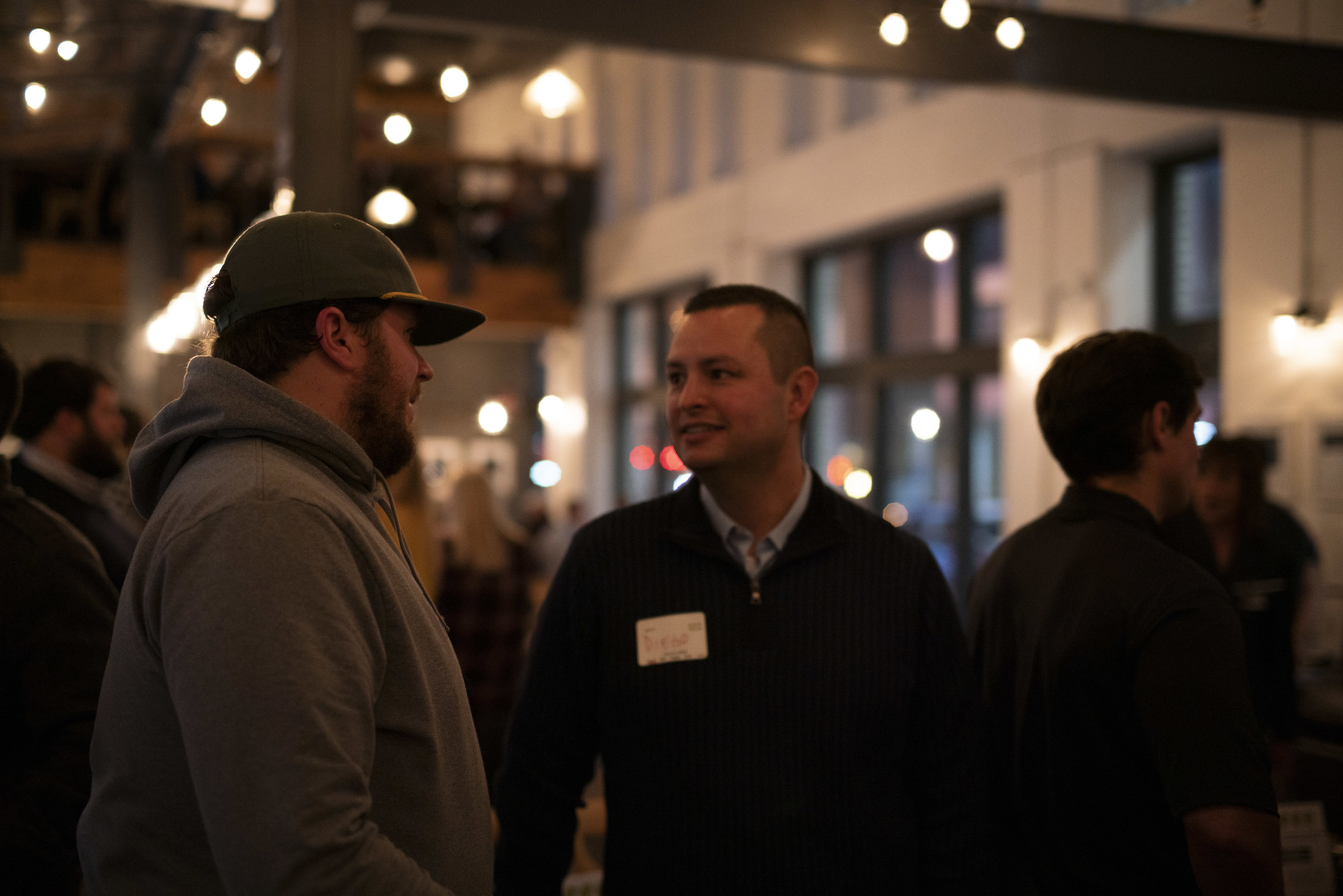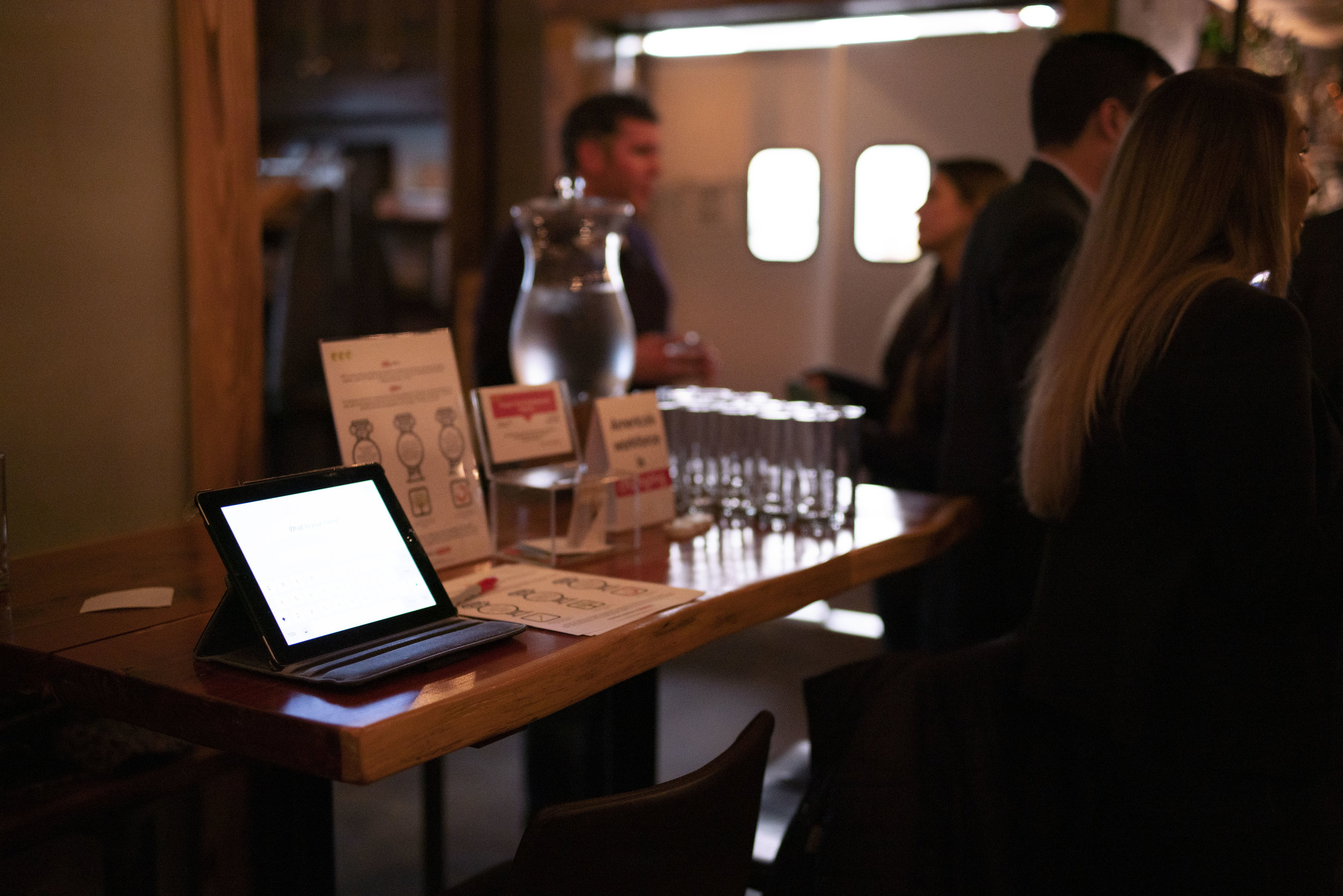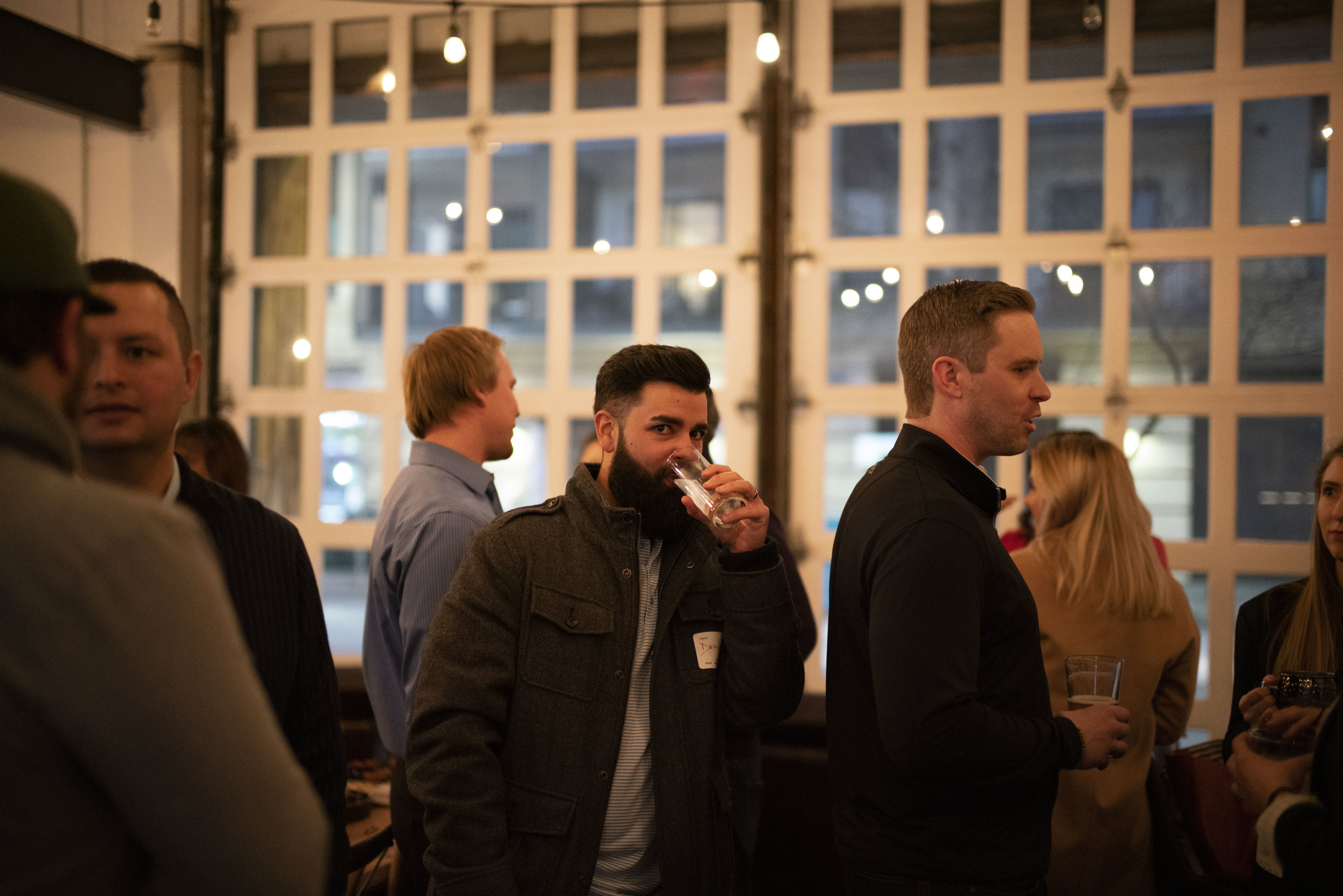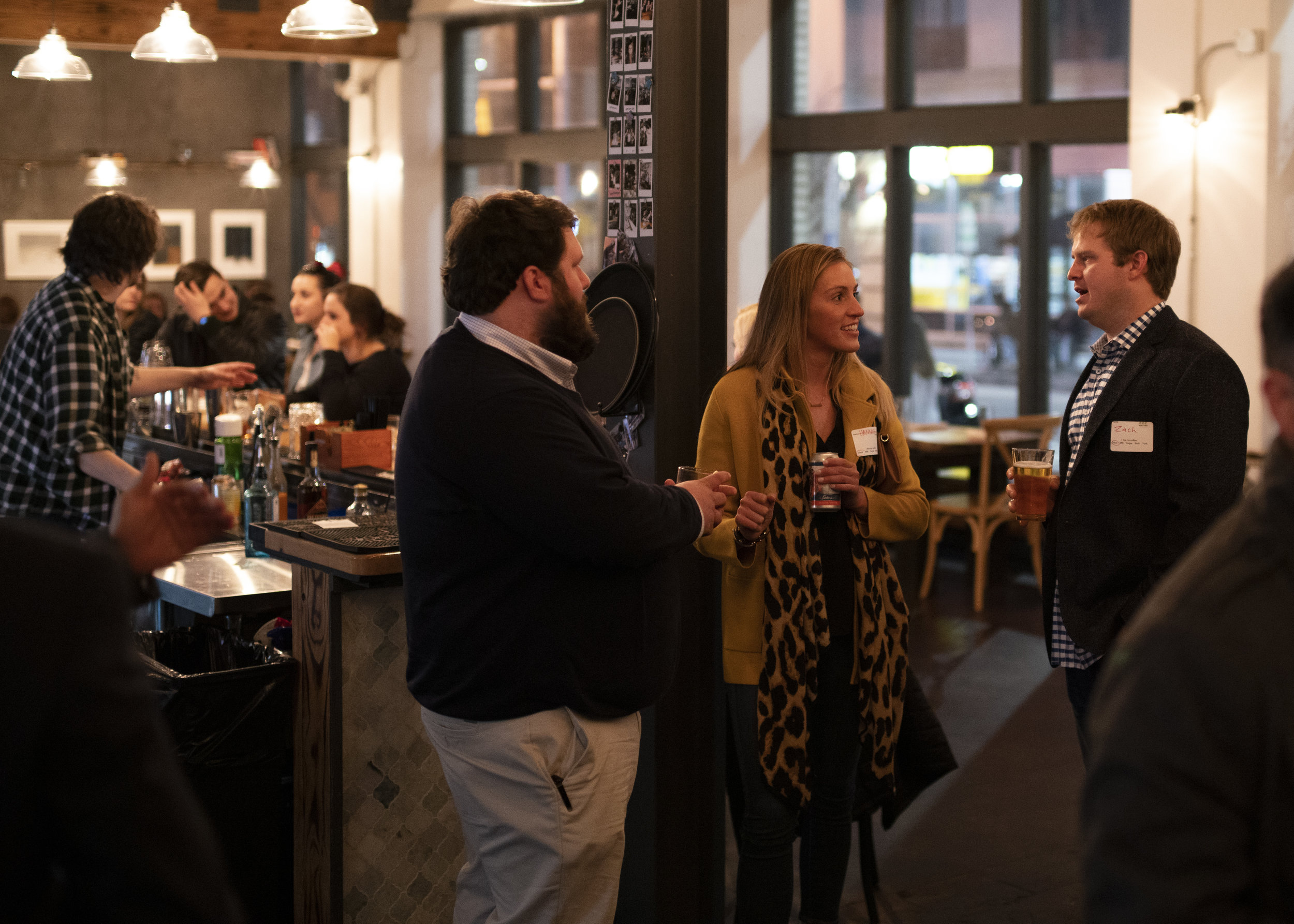February Newsletter
Hi Everyone,
Welcome to the February PFP newsletter!
We had a great month with even more to look forward to in March. Thanks to all who came out and joined us for our pop-up networking event at Mofu last week – we had our best turnout yet and made some great new friends.
Coming up in just a couple of weeks, on March 11, we are kicking off our speaker series with our good friend Michelle Weathersby, CQIA, PCLC, who is going to share her expertise around LinkedIn with us. The last ticket was claimed this week, but please reach out to us if you would like to put your name on the wait list.
We’ve compiled some of our favorite EQ-related content from the past month below, along with some photos from our Mofu event , a new video, and more details about the LinkedIn workshop coming up.
We hope you enjoy, and would love to hear from you if you have any thoughts or suggestions to share!
Thanks,
The PFP Team
Thanks to everyone who came out to join us at Mofu! We had a great time making some new connections and reconnecting with old friends. We’ll see you all at the next Pop-Up in May!
February Book Review:
Digital Minimalism
by Cal Newport
Digital Minimalism is one of my favorite reads in some time. As our lives are increasingly inundated and overwhelmed by screens and technology, this guide is a refreshing perspective on how we can approach technology more effectively and identify when our use of these tools eclipses the point of diminishing returns.
Capturing and keeping our attention has become one of the most powerful and profitable ventures in the market, and our devices and applications are specifically designed to take advantage of our psychological biases in order to keep our attention. With that in mind, we need to adopt a new philosophy and approach to technology in order to effectively combat the forces designed to work against us.
Tristan Harris, a former Google engineer and whistleblower, referred to our smartphones as slot machines on a segment with Anderson Cooper. He went on to explain that technology companies have carefully engineered entire playbooks of techniques designed to keep us using their products as much as possible. Using strategies like intermittent positive reinforcement or the drive for social approval to influence our use of their products in particular ways and for long periods of time.
Our attention is their profit.
Newport’s definition of Digital Minimalism is a philosophy of technology use in which you focus your online time on a small number of carefully selected and optimized activities that strongly support the things you value, and then happily miss out on everything else. On the contrary, the maximalist philosophy that most of us deploy by default, is a mindset where any potential benefit is enough for us to adopt a technology. He cites 3 main principles within the Digital Minimalism philosophy:
1) Clutter is costly.
Too many devices, applications and services can outweigh the small benefits derived from each in isolation.
2) Optimization is important.
We should think carefully about how we use each technology to extract its full value
3) Intentionality is satisfying.
Intention trumps convenience.
Within each of these principles, Newport cites a number of different engaging examples to illustrate these points more clearly, including a lesson from the Amish -- their outlook on technology may surprise you.
There is no shortage of “tips and tricks” articles with different hacks to take back control of our technology usage. But Newport is emphatic (and I tend to agree) that this is not enough to combat the addictive power of many technologies, and therefore recommends starting with a digital declutter. A 30 day break from all optional technologies, during which we rediscover activities we find meaningful, and at the end of 30 days reintroduce optional technologies from a blank slate, focused on the value each serves.
Newport goes on to share experiences and stories from individuals who have gone through the declutter process, where they struggled, and how it’s changed their lives.
Finally, he gives some practical ideas for how we can fill the void left from decluttering our excess technology use with more valuable activities along with examples and stories – including some from famous historical figures.
At a high level though, he describes the following main areas where we can reinvest our time and attention:
- Spend Time Alone – the value of solitude
- Don’t Click “Like” – the social media paradox and
- Reclaim Leisure – a focus on high-value leisure
- Join the Attention Resistance
If any of the content above strikes a chord with you, I can not recommend this book enough. There is so much value packed into each page, it would be a disservice to the text to try and water it down any further.
We would love to hear from any of you who give it a read and compare notes and strategies. I am just starting on the decluttering journey myself, and have already noticed a substantial change of having more emotional energy and margin. I’m certain this is a topic we will only continue to hear more about and see more research around in the coming months and years as well.
February Challenge:
This month we want our members and readers to focus on mindfulness and de-stressing. We shared with you some thoughts from Digital Minimalism on how to eliminate or reduce tech-related stress from our busy lives.
For this month's challenge, we are going to introduce a very feasible and easy to digest meditation framework that you can easily introduce into your daily rhythm based on Victor Davich's "8 Minute Meditation."
Link to purchase: https://www.amazon.com/Minute-Meditation-Expanded-Quiet-Change-ebook/dp/B00NMPN1OM
"8 Minute Meditation" is a practical guide to introducing meditation into your daily life. It starts off with a daily 5 minute mediation, and walks the reader through the process, challenges, and steps to get over the typical frustrations associated to starting on a meditation journey. By the end of 1 month, you will be looking at 8 minutes of advanced meditation and reaping all the benefits therein.
Our challenge: whether you take advantage of the walk through and program provided by "8 Minute Meditation" is to begin meditating for a minimum of 5 days a week, 5 minutes per day. Begin taking notes on where you struggle with meditation, thoughts you uncover during meditation and the physical and mental benefits you experience.
Meditation, mindfulness and EQ go hand-in-hand. Meditation provides an opportunity to destress and take a deep look into your feelings and emotions.
Enjoy and let us know how it goes!







